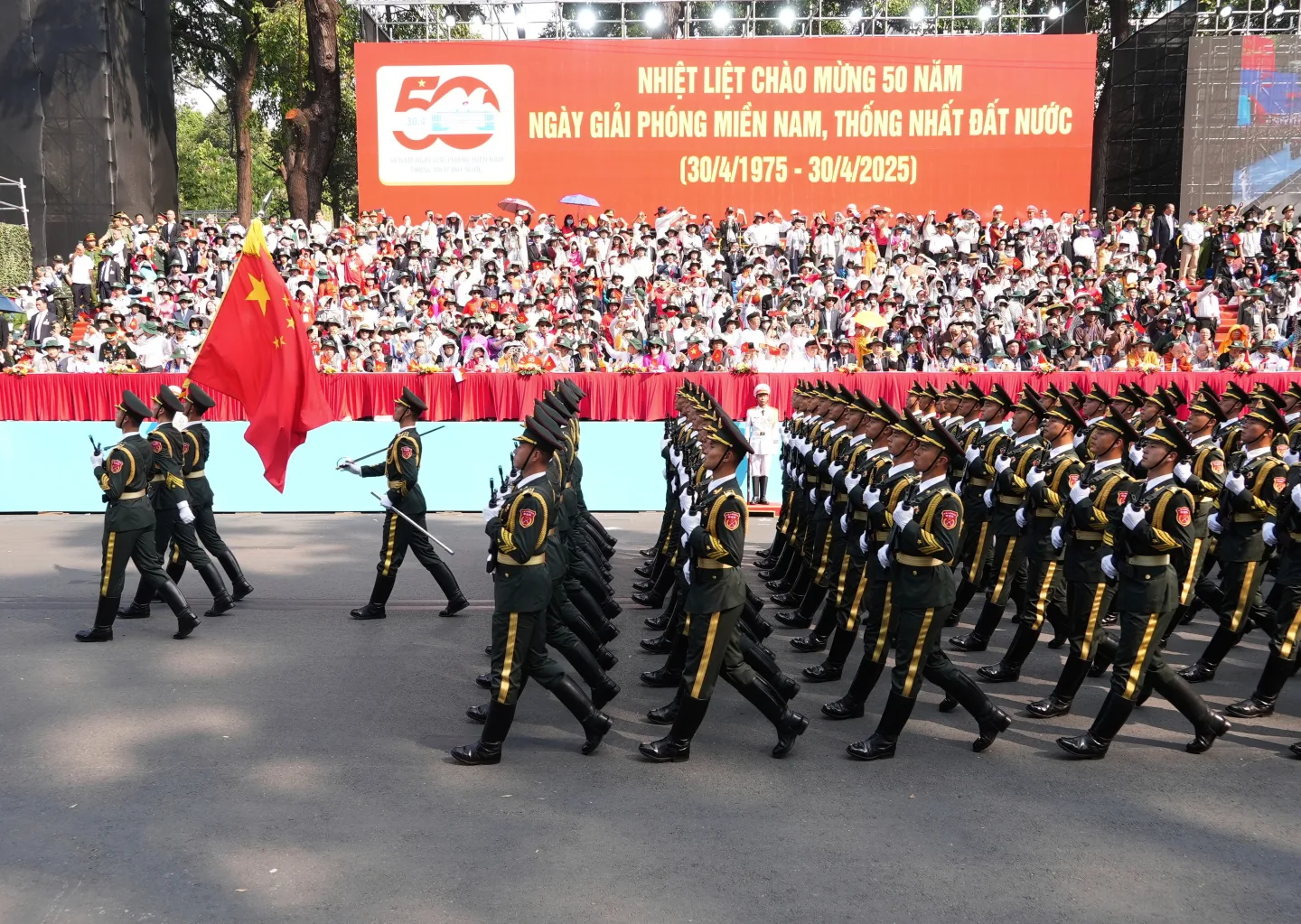50 Years Since the End of the Vietnam War: Military Parade Marks Progress and Challenges in U.S.–Vietnam Relations
Marking 50 years since the end of a long and bloody war with the United States and the birth of a modern nation, Vietnam held a grand celebration on Wednesday. During a colorful military parade and cultural event in Ho Chi Minh City, the country's top leadership reaffirmed their commitment to a peaceful and unified future.
50 Years Since the End of the Vietnam War: Military Parade Marks Progress and Challenges in U.S.–Vietnam Relations
50 Years Since the End of the Vietnam War: Military Parade Marks Progress and Challenges in U.S.–Vietnam Relations
Ho Chi Minh City, April 30, 2025 — Marking 50 years since the end of a long and bloody war with the United States and the birth of a modern nation, Vietnam held a grand celebration on Wednesday. During a colorful military parade and cultural event in Ho Chi Minh City, the country's top leadership reaffirmed their commitment to a peaceful and unified future.
On April 30, 1975, with the fall of Saigon, the division between North and South Vietnam ended, and the country was unified under a single communist government. In memory of that historic day, thousands gathered on the streets. Some even camped overnight to get a good view of the parade.
“All Vietnamese are children of one nation. They have the right to live, work, and pursue happiness and love. Leaving the past behind and respecting differences, we will work together to build a peaceful, united, and prosperous Vietnam.”
The parade included around 13,000 participants—soldiers, militia members, war veterans, and civilians. Marching along the main road toward Independence Palace, the parade passed by the U.S. consulate. Overhead, helicopters and fighter jets flew, with a special highlight being a helicopter carrying the national flag.
Among the guests were former Cambodian Prime Minister Hun Sen and Thongloun Sisoulith, General Secretary of the Communist Party of Laos. Soldiers from China, Laos, and Cambodia also took part in the parade, with many dressed in 1975 North Vietnamese uniforms.
One parade float featured Vietnam’s symbolic Lac bird, while another displayed a portrait of national founder Ho Chi Minh. A video of Chinese soldiers singing “May Ho Chi Minh Be With Us on Victory Day” during rehearsal went viral on social media.
Analysts say this year’s celebration conveys not military triumph but a message of “unity and peace,” reflecting Vietnam’s current global posture and diplomatic strategy. Nguyen Khac Giang, a researcher at Singapore’s ISEAS–Yusof Ishak Institute, said:
“Although the war remains a foundation of Vietnam’s national unity and identity, the country now wants to be part of global peace and economic development.”
Pham Ngoc Son, a war veteran who worked as a truck driver during the conflict, said:
“Today’s Vietnam is a place of peace and friendship only. The war ended long ago.”
This year also marks the 30th anniversary of diplomatic relations between the United States and Vietnam. In 2023, both countries elevated ties to a “comprehensive strategic partnership” — placing the U.S. on par with Vietnam’s key partners like China and Russia.
However, relations have faced strains. Under the Trump administration, a 46% tariff was imposed on Vietnam, foreign aid was cut, and USAID’s budget was slashed — threatening programs such as Agent Orange cleanup and unexploded ordnance clearance.
“If the United States focuses solely on the economy and not strategic competition, the importance of Vietnam and other Southeast Asian nations may decline.”










